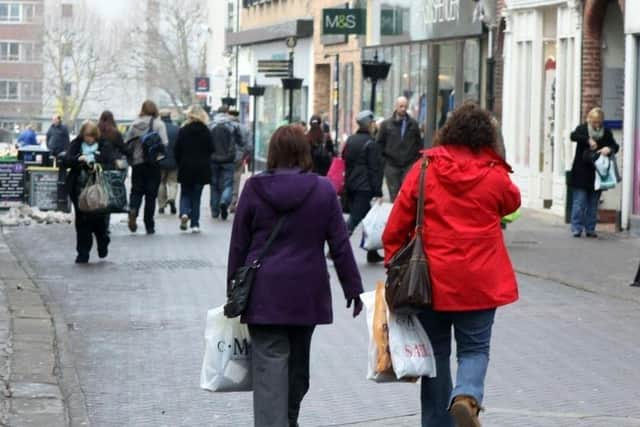'Increasingly likely' Chesterfield will become a Covid-19 hotspot, says University study
and live on Freeview channel 276
Chesterfield now has a 50 per cent chance of becoming a Coronavirus hotspot, a study by the Jameel Institute for Disease and Emergency Analytics at Imperial College London stated.
The study also shows that, hypothetically, the town will have 66 per cent chance of becoming a coronavirus hotspot from October 17.
Advertisement
Hide AdAdvertisement
Hide AdA hotspot is an area that has more than 50 cases per 100,000 people regularly, a figure that Chesterfield is currently shy of.


This news comes about after the infection rate in Chesterfield (the number of people with coronavirus per 100,000) went up drastically in latest government figures this week compared to last week.
The reproduction rate also remains well above 1, the highest since the middle of the lockdown earlier this year.
Only one week ago the same study said Chesterfield had only 27 per cent chance of becoming a Coronavirus hotspot.
Advertisement
Hide AdAdvertisement
Hide AdThere were 41 positive cases of Covid-19 in Chesterfield in the latest week between September 25 and October 1, up by 23 compared with the previous week.
There are several different areas of Chesterfield and North Derbyshire that have had an increase in cases and, as of September 26, the most being in Tibshelf, Newton and Hardwick Park, where there were 13.
It was reported this morning that Wales are looking to implement a quarantine for visitors travelling from coronavirus hotspots in other parts of the UK.
Dean Wallace, director of public health for Derbyshire County Council, said: “If over the next few weeks people follow the guidance and we can trace the contacts, we can stop local restrictions from happening, because we did it before.
Advertisement
Hide AdAdvertisement
Hide Ad“We have still got time to turn this around. It is the local effort and response that is required.
"If people respond to our calls for testing and respond to our contact tracing calls we can avoid a lockdown.
“Local people, boots on the ground, posting leaflets and talking to people, people calling from local phone numbers and email addresses makes a world of difference.”